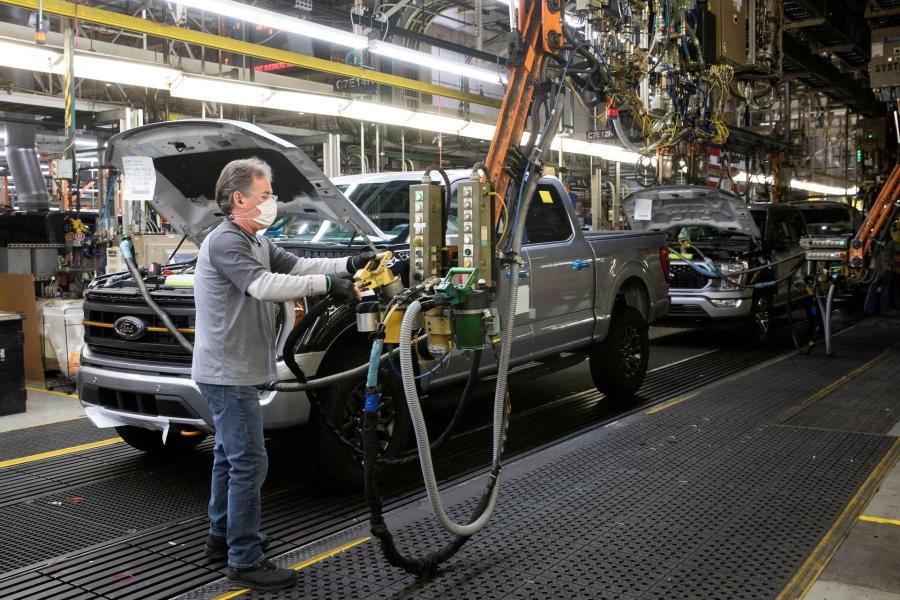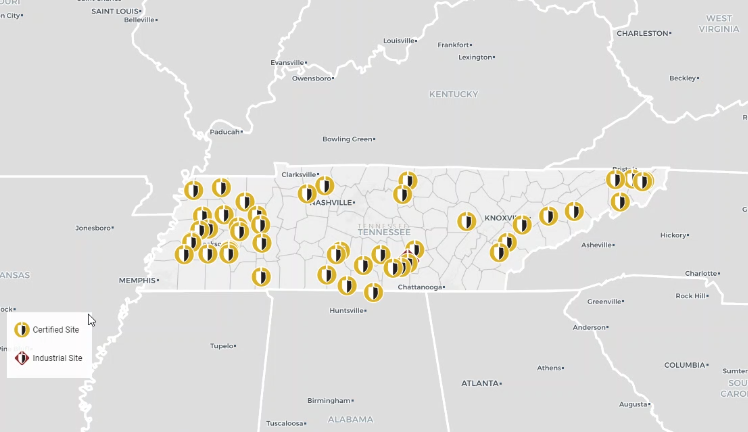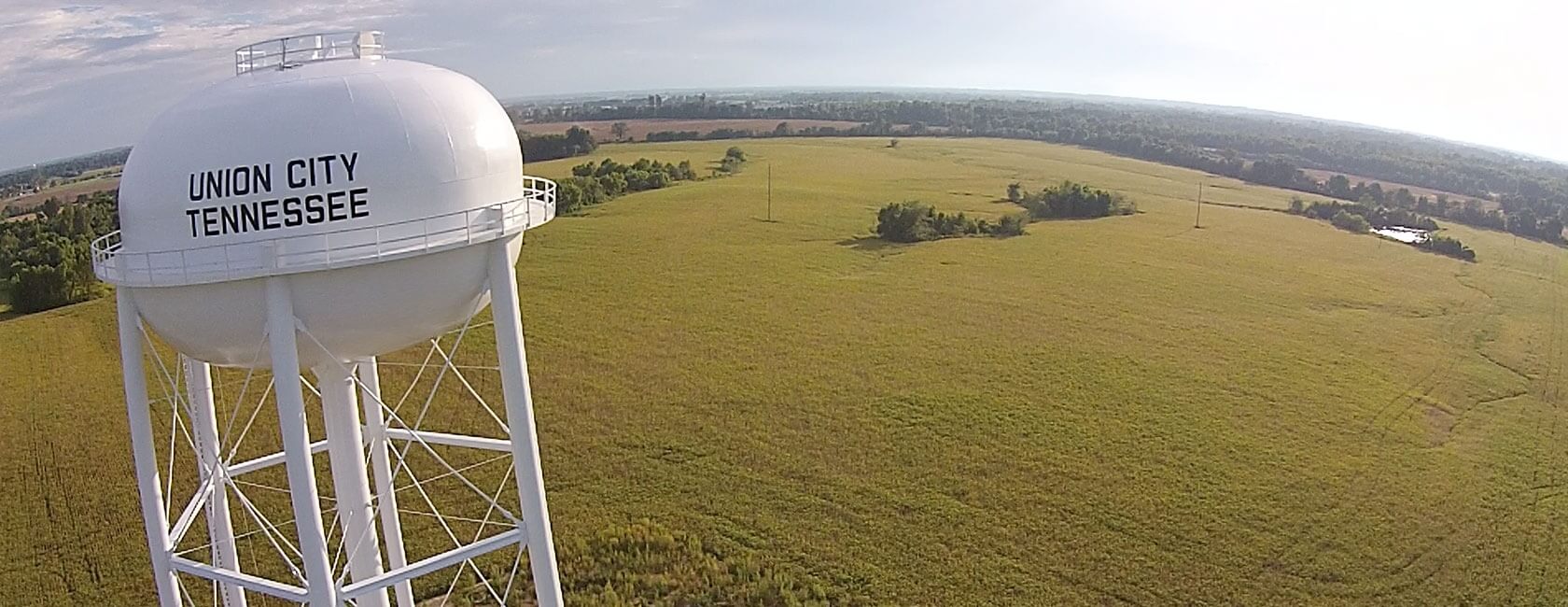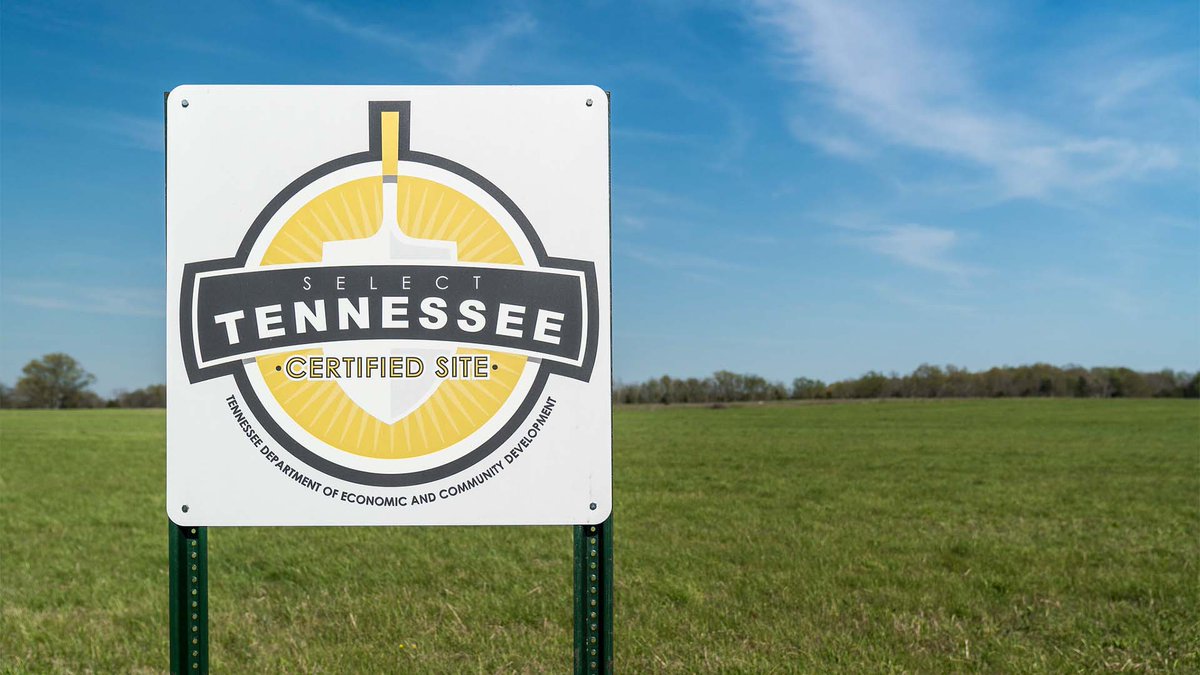Industrial boards, certified sites, and good data keys to landing Ford suppliers

By KATE COIL
TML Communications Specialist
While there are plenty of opportunities for communities across the state to land suppliers for Blue Oval City, economic development officials said those municipalities with active industrial development boards, ready sites, and that can quickly provide data on community assets will have substantial recruitment advantages.
Officials with the Tennessee Department of Economic and Community Development (TNECD) conducted a roundtable focused on how communities can recruit coming automotive suppliers to the state during a recent Blue Oval Community Impact meeting. Speakers included Senior Director of Business Development Chassen Haynes, Southwest Tennessee Regional Director Tracey Exum, Northwest Tennessee Regional Director Jana Hellums, and Greater Memphis Regional Director Blake Swaggart and was hosted by Assistant Commissioner of Business and Workforce Development Jamie Stitt.

Swaggart said TNECD is already getting requests for information (RFIs) and site visits from automotive supply companies interested in the state because of Blue Oval.
“Tennessee has been blessed over the last 40 years with being home to so many suppliers that support the automobile industry,” he said. “We have close to 1,000 suppliers in Tennessee right now, which makes our auto environment very attractive to existing suppliers. Most of our investments comes from the automobile industry across our state, bringing new jobs and capital investment. The suppliers are critical. As new recruitment projects come in to supply Blue Oval, it is also critical that we have the inventory. We are starting to run out of available sites across our state. If we don’t have that inventory, the suppliers are going to look outside of Tennessee.”
Hellums said Northwest Tennessee is seeing a lot of movement on both the automotive and battery side, especially since the region is halfway between Ford’s new sites in Tennessee and Kentucky. There are more than 50 certified sites across the state, but Swaggart said as lower tier suppliers begin looking for places to locate, more sites will be needed.
“I feel we have adequate sites for tier one suppliers,” Swaggart said. “There are some existing buildings available. We have some capacity, but I feel like we need more inventory to be able to compete as we move forward. A lot of the requests for information we have are for the same communities, and once those sites are taken, we are going to have a shortage of sites.”
Haynes said that state-certified sites give communities an advantage when recruiting suppliers.
“The certified site program makes sure the sites are ready and has a reputation at this point,” Haynes said. “When companies and specifically consultants come in, these communities have all the due diligence on the site and pathways for how to get utilities served to the site, it helps speed up the deliverability of a site. As soon as companies start turning dirt and spending money, they want to get vertical and get product out the door instead of continuing to spend money. It’s the case across the state that certified sites are dwindling, and we need a lot more.”

Exum said communities that already have prepared and certified sites will have an advantage over those who don’t, but communities without these sites aren’t necessarily out of the game.
“Communities that have followed our guidelines early on when it comes to site development and being prepared, going through the PEP process, and received grants for site development are going to have a leg up on the communities that are playing catch-up right now,” Exum said. “Many of our communities have not received an RFI in a long time. A lot of those RFIs have very lengthy questionnaires connected to them, and if you haven’t completed one of those questionnaires in a long time, it may be a good idea to ensure you can do so with accurate data and information. We can help you with that and gathering that information. When we get a request for information, the turn-around time on that is often very short. It is recommended you can pick and pull from your catalog to fill out that questionnaire completely. I am also finding that many communities have inactive industrial boards. Those boards can be critical when it comes to offering local incentives such as tax abatements.”
Hellums said officials may want to know in advance who the members of the team are that will meet with potential suppliers when they come on site visits and have run through presenting to them.
“Know how they are coming into your community,” Hellums said. “There may be a better route that highlights more of the assets in your community than driving them by the dump. If you have been through that site development and certification program, you have that source of ready information to pull for your RFI. You will know exactly what are your capacity and capability needs. You know everything you need to know about your site, and it relieves some anxiety of preparing for that site visit. TVA is another huge resource. They have specific training programs that do a mock interview process for a site visit.”
While many officials may want to participate in the site visit, officials recommended that a small team of the right stakeholders may be more effective. This will allow company officials to better know who to approach for specific information and prevent them from being overwhelmed by getting to know too many faces. It is also important to be honest with potential companies when you don’t know the answer to a question they have asked and get back to them with the right information quickly. Community leaders should also be honest about their weakness but present examples of how they are working to address those.

While West Tennessee is a major destination for many suppliers, Haynes said these companies are looking around the state.
“The certified sites in West Tennessee are getting a lot of the looks for automotive suppliers because Ford wants to be ready in 2025. Time is of the essence,” he said. “These companies are looking in Middle Tennessee and Northeast Tennessee. They are wanting to mitigate as much risk and get up and going as quickly as possible. Throughout this year, you will see more tier one announcements. Through next year you will see some tier two as well. Not all of the suppliers will have the same ramp up time. A tier one supplier will have more infrastructure needs and development. We will start seeing more tier twos and tier threes as we get closer to 2025. Those tier two and tier threes are going to want to identify some existing buildings because they won’t have extensive capital investments on the front end. Communities who can work with developers to have spec buildings ready to go may have an advantage.”
With hotels, apartments, and houses filing up just from the construction workers, Haynes said housing and quality of life are going to become more important as Ford, SK, and their suppliers bring more permanent employment to the region.
“Many communities are probably already seeing, from a livability standpoint, housing is going to become a pinch point,” Haynes said. “Communities that are able to talk about quality of life, the affordability of living in their community, and the ability to show you have a plan in place to mitigate housing shortages are going to have an advantage. The communities who are better able to articulate how they are addressing these issues are going to do well. Particularly in the more rural areas of Tennessee. Your ability to articulate your labor and workforce situation, how you will be able to meet their needs either from a skilled workforce or bodies, and understanding commute times are helpful. You are going to need to plan where neighborhoods are going, how to provide those neighborhoods with infrastructure, and the communities most prepared to address those issues are getting the most looks right now. Growing pains may take place as you deal with infrastructure on the back end.”
Hellums said childcare and education are another consideration for communities.
“In addition to livability in terms of housing, you also need it in terms of childcare,” she said. “A double-income family with kids will need extended family or something for their childhood. We have seen some unique opportunities. Tyson in Humbolt started their own childcare service for their employees. There is going to be some creativity that is needed.”
